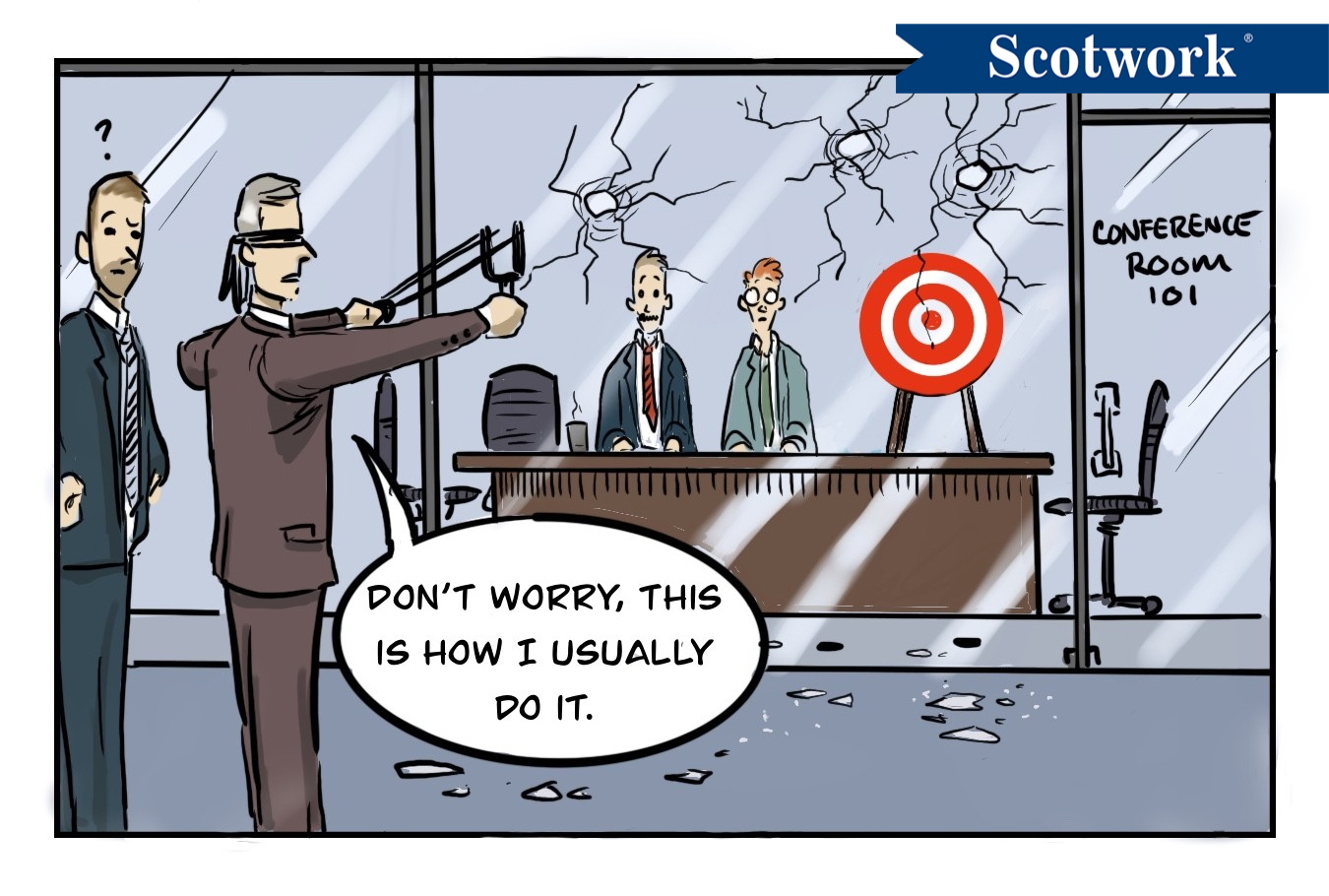We study trillions of dollars of negotiated commerce a year, and whenever we ask negotiators if they can identify the long-term value of what they negotiated, only 23% say they can. That seems nearly impossible! But when you negotiate without purpose, that’s exactly what can happen.
Imagine you’re going on a road trip, driving from New York to Durham, North Carolina. Your goal is to get there in eight hours or less. You’ve got your route planned, your car gassed up, and plenty of snacks and supplies. Along the way, you’re watching your speed and checking traffic to make sure you hit your goal. You’re also checking your fuel to know when to make a pit stop. As you drive, you’re caught in unforeseen traffic. Your goal of eight hours is in jeopardy. So, you adjust, find an alternate route, and increase your speed to make up time. Thanks to these adjustments, you get to Durham in seven hours and 40 minutes. You’ve hit your goal.
Now, imagine the same road trip, but it goes like this: You get in your car, close your eyes, and start driving. Miraculously, you manage to navigate your car for eight hours without hitting anything or causing an accident. When you open your eyes, you find yourself in Punxsutawney, PA. You’re out of gas, the car is no longer moving, you’re 300 miles west of your starting point and still eight hours from Durham. So, you get out of the car and decide to make the most of Punxsutawney and try to get to Durham another day. When that day comes, you point your car towards Durham, close your eyes, and start driving . . . and the cycle continues.
Here’s the thing: While we may plan journeys like the first example, many of us negotiate like the second example.
Many of the people we work with find themselves in the same kinds of negotiations over and over again. Whether it’s a salesperson closing the same kinds of clients with the same kinds of solutions, or a procurement person securing contracts with similar vendors for familiar services, after a while, it starts to feel a little like Groundhog Day.
All that familiarity breeds complacency. We begin to take shortcuts in our planning process. We make big assumptions based on well-informed opinions and feel confident that we can just roll into a negotiation and wing it. Or we set our sights on “getting the deal” without knowing what the specifics of the deal should be.
That’s why most negotiators can’t identify the long-term value they’ve negotiated: They negotiate without purpose.
How do you know if you have a plan or you’re driving with your eyes closed?
Do you know what a good deal looks like? You should’ve identified the issues and positions you need for a good deal.
Do you know what a bad deal looks like? You should know your limits and what you’re willing to accept or agree to for every issue.
Do you know what’s important to the other side? Do your homework to understand what’s important to them. Plan the questions you’ll ask to validate your assumptions when you sit down with them.
Do you know who’s going to be doing what in your negotiation? If you’re negotiating as a team, decide who’s going to do what. This will eliminate confusion during the negotiation. If you’re by yourself, map out your route through the negotiation to keep yourself on track.
Do you know how you’ll start your negotiation? If you don’t plan how to begin your negotiation, you’re giving the other side the ability to control and drive it.
If you can answer “yes” to all of the above questions, then you have a plan with more purpose than your average negotiator. If not, then spend more time with your purpose and plan — or get ready to live with the consequences. It’s your choice.
We Can Help You Negotiate with Purpose.
Three out of four negotiators can’t identify the long-term value they’ve negotiated because they negotiate without purpose. Rely on Scotwork experts’ nearly 50 years of real-world experience to get the most out of all your deals.

